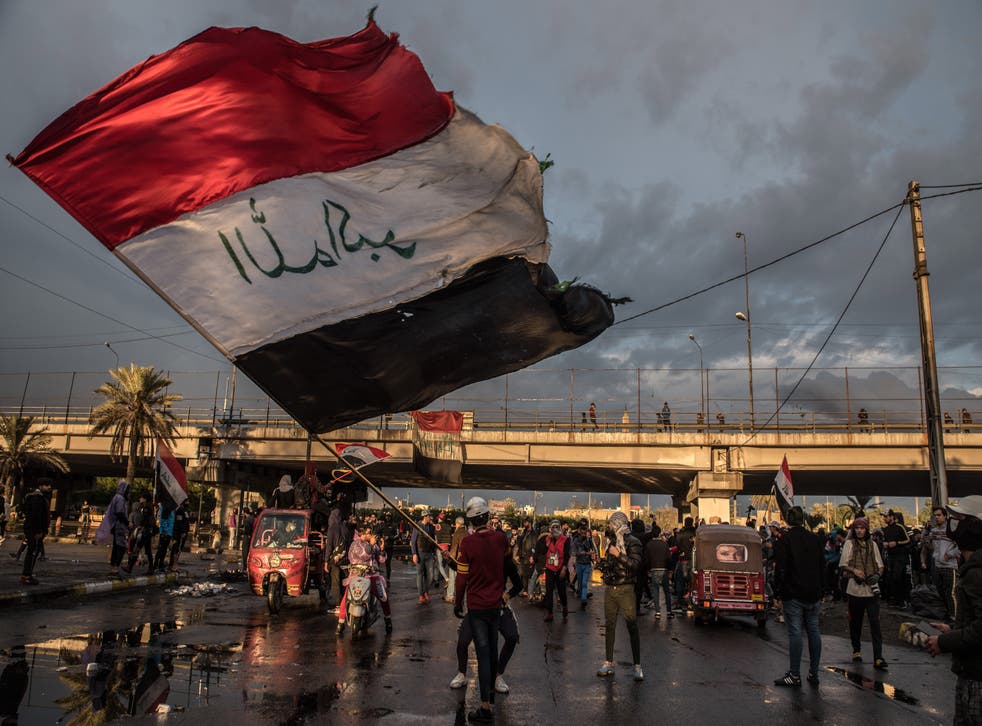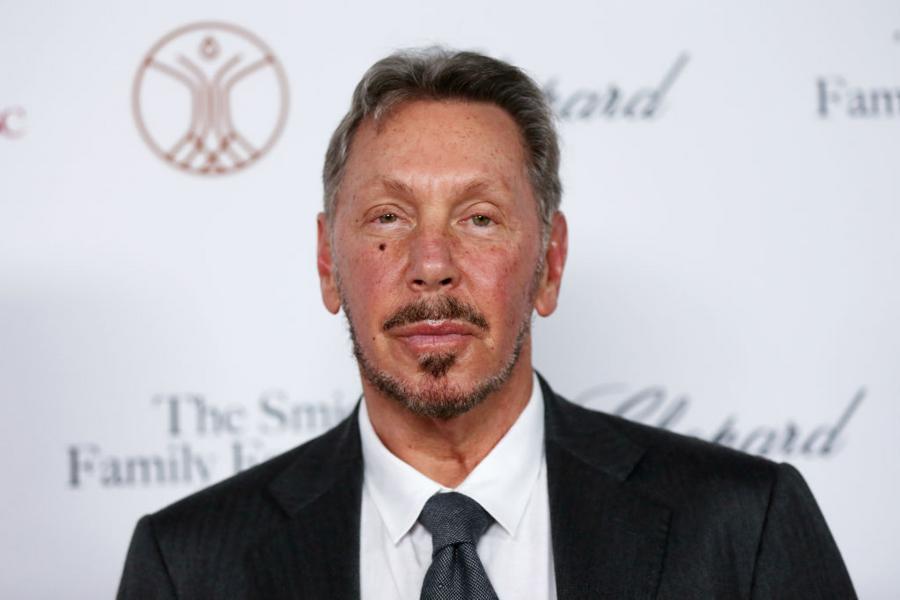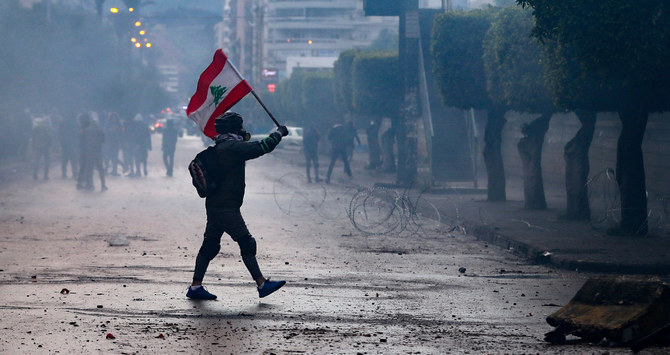
Beirut - By Vivian Haddad -- aawsat.com -- In the midst of lockdown that has been imposed on the Lebanese since January 14, 2021, museums, galleries, and even managers of film festivals are refusing to have their hands tied. Through weekly and monthly initiatives, they are trying to ease people's stress and boredom. People are enjoying virtual tours of museums and exhibits, as well as film screenings. In this context, the 6th edition of the Beirut Art Film Festival (BAFF) will screen movies on a Sunday evening every month, starting off this upcoming Sunday, January 31, with a documentary film about Winston Churchill, titled “Churchill & the Movie Mogul.” Winston Churchill was mad about films, more than any other politician in history. The true extent of his use of films as a propaganda tool has not been previously explored, the group says about the film.
Speaking to Asharq Al-Awsat, Alice Mogabgab, the director of the Beirut Art Film Festival, says: “We wanted to screen this movie to indicate the importance of cinema’s role in the world of politics. Churchill used it to achieve his political objectives and influence his colleagues inside and outside Britain." "The movie will show how Churchill compelled the US to engage in the Second World War.” She adds that “the film also sheds light on the director Alexander Korda’s character. He produced many movies that had a great impact on modern cinema, like Gone with the Wind.” Mogabgab says that everyone needs to take a break from the situation of the pandemic that we are living today. "That is why we thought of holding the 6th edition of the festival virtually to screen famous works. After Churchill’s movie, we will share a list of new movies that will be screened once a month until next December, the date of the festival’s seventh edition.” After the movie ends, a roundtable discussion about it will be held.

By Liz Sly -- independent.co.uk -- Much of the Arab world erupted in jubilant revolt 10 years ago against the dictatorial regimes whose corruption, cruelty and mismanagement had mired the Middle East in poverty and backwardness for decades. Now, the hopes awakened by the protests have vanished but the underlying conditions that drove the unrest are as acute as ever. Autocrats rule with an even tighter grip. Wars unleashed by leaders whose control was threatened have killed hundreds of thousands of people. The rise of the Islamic State amid the resulting wreckage ravaged large parts of Syria and Iraq and drew the United States into another costly Middle East war. Millions of people were driven from their homes to become refugees, many converging on the shores of Europe and beyond. The influx fuelled a tide of nativism and anti-immigrant sentiment that brought populist leaders to power in Europe and the US as fears of terrorism eclipsed concerns for human rights as a Western priority. Even in those countries that did not descend into war, more Arabs are now living in poverty, more are unemployed and more are imprisoned for their political beliefs than a decade ago.
Only in Tunisia, where the protests began, did anything resembling a democracy emerge from the upheaval. The fall of Zine el-Abidine Ben Ali, the Tunisian President, after a month of street protests in Tunis inspired demonstrations across the Middle East, including the mass protest on 25 January 2011 in Cairo’s Tahrir Square that fixated world attention on what was prematurely labelled the Arab Spring. On its face, the Arab Spring failed, and spectacularly so – not only by failing to deliver political freedom but by further entrenching the rule of corrupt leaders more intent on their own survival than delivering help. “It's been a lost decade,” said Tarik Yousef, director of the Brookings Doha Centre in Qatar, recalling the euphoria he initially felt when the fall of Libya’s Moammar Gaddafi in August 2011 enabled him to return home for the first time in years. “Now we have the return of fear and intimidation. The region has experienced setbacks at every turn.”

by celebritynetworth.com -- Larry Ellison is primarily known as the founder and former CEO of database giant Oracle. For those of you who are not aware, for much of the pre-internet 80s and 90s, Oracle was the dominate supplier of software for business systems. You know how Microsoft dominated personal computing with software like Excel and Word? Oracle had the same dominance with software that powered payroll systems, hospital records, hotel/airline booking services… etc. Today, Oracle is one of a few dominant "cloud" database companies. If you receive a paycheck from or fill out expense reports for a medium to large company, there's a good chance Oracle is powering that software behind the scenes. Ellison took Oracle public on March 12, 1986, literally ONE DAY before his rival Bill Gates took Microsoft public.
Over the last 20 years Larry has cashed out at least $10 billion from Oracle through stock sales and dividends. He has used some of the proceeds generated by these sales to acquire arguably the coolest portfolio of toys, real estate, hobbies and endeavors in the world. He owns the entire Hawaiian Island of Lanai. He literally owns 99% of the island's land and ALL of its buildings, including its two ultra-exclusive Four Seasons resort locations. He also basically owns an America's Cup racing team, TWELVE homes in Malibu, the 249-acre Porcupine Creek Estate golf course in Ranch Mirage, California, the Indian Wells Tennis Garden in Coachella, California, several private jets, a Mig-29 fighter jet, an airline… I could go on and on, but I'll stop there.

By NAJIA HOUSSARI -- arabnews.com -- BEIRUT: Lebanon on Thursday launched an electronic platform for citizens and residents wishing to receive the coronavirus vaccine. Meanwhile, protests over the full lockdown have spread to cities in the south of Lebanon, considered as pro-Hezbollah and Amal Movement. Demonstrations in Tripoli turned violent — a protester was killed and tens of people were injured during clashes with security forces that have continued for the fifth consecutive day. In a conference on Thursday, Lebanon’s Caretaker Health Minister Hamad Hassan hoped citizens would “respond to the national plan to inoculate over 80 percent of the population and achieve herd immunity to protect society from the virus.” Registration began as soon as the platform’s launch was announced, with an average of 2,000 people visiting the site every five minutes. The Health Ministry said that “the official vaccination platform protects the privacy of beneficiaries as well as the database and was tested under the supervision of an IT team from the World Bank to ensure it cannot be hacked.” Hassan, who has recently recovered from COVID-19, said: “The vaccination plan requires the commitment of all institutions and administration to the principle of equality and justice above any other consideration, whether political, regional or sectarian.”
Caretaker Information Minister Manal Abdel Samad said in a press conference: “The number of coronavirus cases in the productive sectors is extremely high, with 72 percent of the cases from the productive segments of society, i.e., those between 20 and 59 years old, which reflects the danger of this pandemic.” Abdel Rahman Bizri, head of the national committee for the administration of the COVID-19 vaccine, told Arab News: “Lebanon needs to vaccinate between 70 and 80 percent of its population to achieve herd immunity.” “The Pfizer vaccine that Lebanon has chosen for its vaccination plan is expected to arrive to the country between Feb. 7 and 15, to be followed by more doses in in March,” he said. The first phase of the vaccination plan is expected to cover medical staff and workers in the health care sector, as well as citizens and residents who are 75 and older, to be followed by younger groups in the next phases.
Khazen History


Historical Feature:
Churches and Monasteries of the Khazen family

St. Anthony of Padua Church in Ballouneh
Mar Abda Church in Bakaatit Kanaan
Saint Michael Church in Bkaatouta
Saint Therese Church in Qolayaat
Saint Simeon Stylites (مار سمعان العامودي) Church In Ajaltoun
Virgin Mary Church (سيدة المعونات) in Sheilé
Assumption of Mary Church in Ballouneh
1 - The sword of the Maronite Prince
2 - LES KHAZEN CONSULS DE FRANCE
3 - LES MARONITES & LES KHAZEN
4 - LES MAAN & LES KHAZEN
5 - ORIGINE DE LA FAMILLE
Population Movements to Keserwan - The Khazens and The Maans
ما جاء عن الثورة في المقاطعة الكسروانية
ثورة أهالي كسروان على المشايخ الخوازنة وأسبابها
Origins of the "Prince of Maronite" Title
Growing diversity: the Khazin sheiks and the clergy in the first decades of the 18th century
Historical Members:
Barbar Beik El Khazen [English]
Patriach Toubia Kaiss El Khazen(Biography & Life Part1 Part2) (Arabic)
Patriach Youssef Dargham El Khazen (Cont'd)
Cheikh Bishara Jafal El Khazen
Patriarch Youssef Raji El Khazen
The Martyrs Cheikh Philippe & Cheikh Farid El Khazen
Cheikh Nawfal El Khazen (Consul De France)
Cheikh Hossun El Khazen (Consul De France)
Cheikh Abou-Nawfal El Khazen (Consul De France)
Cheikh Francis Abee Nader & his son Yousef
Cheikh Abou-Kanso El Khazen (Consul De France)
Cheikh Abou Nader El Khazen
Cheikh Chafic El Khazen
Cheikh Keserwan El Khazen
Cheikh Serhal El Khazen [English]
Cheikh Rafiq El Khazen [English]
Cheikh Hanna El Khazen
Cheikha Arzi El Khazen
Marie El Khazen